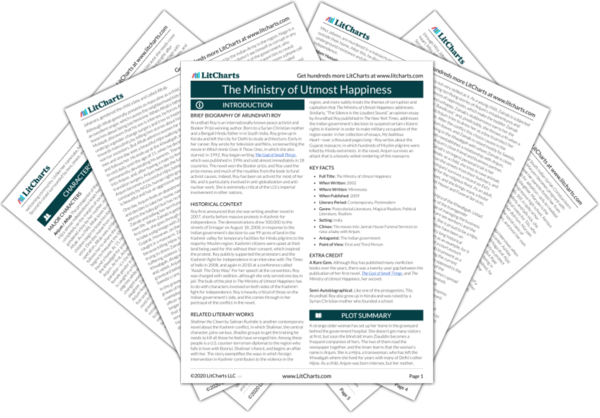Next
Summary
The Ministry of Utmost Happiness Study Guide |
Next
Summary
|
Welcome to the LitCharts study guide on Arundhati Roy's The Ministry of Utmost Happiness. Created by the original team behind SparkNotes, LitCharts are the world's best literature guides.

A Rare Gem. Although Roy has published many nonfiction books over the years, there was a twenty-year gap between the publication of her first novel, The God of Small Things, and The Ministry of Utmost Happiness, her second.
Semi-Autobiographical. Like one of the protagonists, Tilo, Arundhati Roy also grew up in Kerala and was raised by a Syrian Christian mother who founded a school.